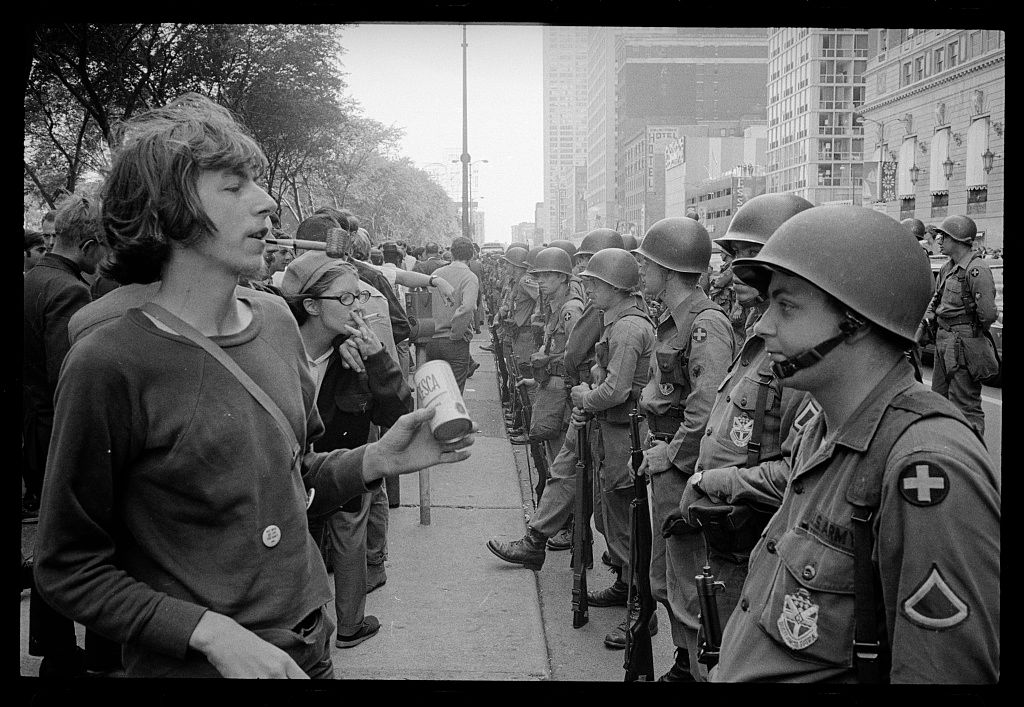It is clear from a fortnight’s worth of 1968 tweets and think pieces that there is a dominant tendency in American political commentary to substitute critical analysis of the present moment with tendentious historical comparisons. We delve through our histories of that fateful year for the key to understanding current civil unrest and for any clue to where things might be headed. The more wrongheaded of us look for clues a century and a continent over—to 1848. Perhaps in Imperial Austria we can find the answers to how heated protest will affect American public policy in 2020. My annoyance notwithstanding, much of the historical analysis we’ve seen is plagued by two errors that will only ensnare us in a bog of silly historical analogies.
The first is to assume that we can sufficiently control for historically-variant factors—technological development, wars, dominant intellectual trends, &c.—to compare two wildly disparate years. As if, by somehow sidelining the Internet, a pandemic, and the Trump presidency, while tweaking some of the more idiosyncratic aspects of 1968, we can competently declare whether the protests will “work” or not. That commentators predict myriad outcomes while ascribing fantastically different levels of correspondence with 1968 should be enough to show that this is nonsense and can be used to bolster nearly any position.
While 1968 is tremendously consequential for understanding the contours of our politics today, it is of very little use for predicting what comes next. Aside from unrest, there are little commonalities between the state of the country then and now. For my part, I doubt that our wise pundits really believe in the eternal recurrence of 1968; it is likelier a rhetorical weapon for frightening right-leaning and invigorating left-leaning Boomers. Regardless, it makes our politics dumber and renders us unable to diagnose the instabilities in twenty-first century America that are currently erupting as social unrest.
The second error—somewhat derivative from the first—concerns historical causation. The claim goes something like: “Rioting has rarely led to short-term accession to demands. Therefore, rioting is ineffective.” As evidence, a defender of such a claim might note that a short-term outcome of the French February Revolution in 1848 was Louis Napoléon’s suspension of the Second Republic’s assembly (itself one of the Revolution’s short-term products) and subsequent establishment of the Second Empire. Of course, the Empire would not last two decades; Napoléon III would be the last French monarch; and the bourgeois revolutionary spirit would come to dominate Europe by the century’s end.
Similarly, if an immediate effect of the 1968 unrest in the United States was Richard Nixon’s election, it is difficult to argue that, in the long run, the New Left did not at least win a qualified victory in capturing key institutions. Ditto the soixante-huitards in France. This means that we should not so wantonly declare historical causation. To be sure, riots may be counterproductive as short-term tactics—though this is by no means crystal clear—but they may also accelerate ongoing shifts in public opinion that may lead to long-term success of the demonstrators’ goals. The point is not to argue in favor of an opposite effect, but to say that effects are exceedingly difficult to isolate. And even if we could definitively identify these events’ effects, this does not mean that the mechanism is readily transferable to 2020. Most likely, it is not.
Prudent political action is not the application of iron historical laws to new situations, because the former do not exist. Believing they do makes us passive as well wait for some event’s necessary effect to take place. We would do well to remember that politics is an art and not a science; the best history can do is to show us better and worse versions of that art. Emerging from the other side of a crisis will not be like plugging variables into an equation, and we inhibit our ability to act if we’re sitting on our hands waiting for 1968 to repeat itself.
